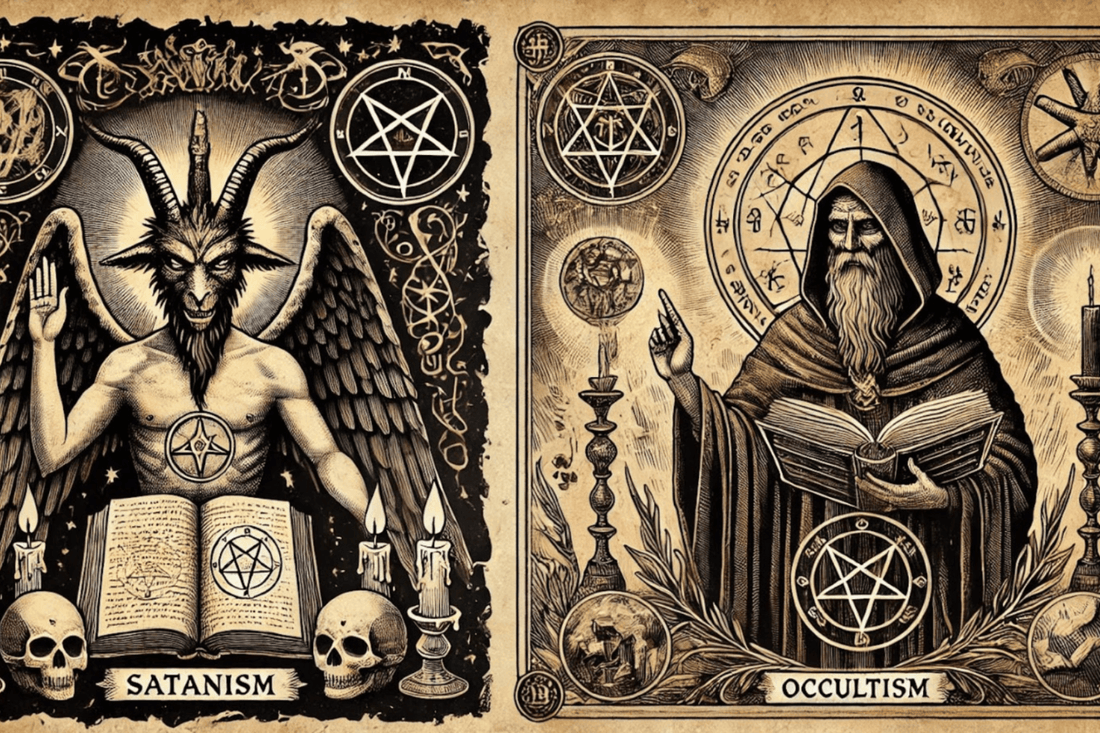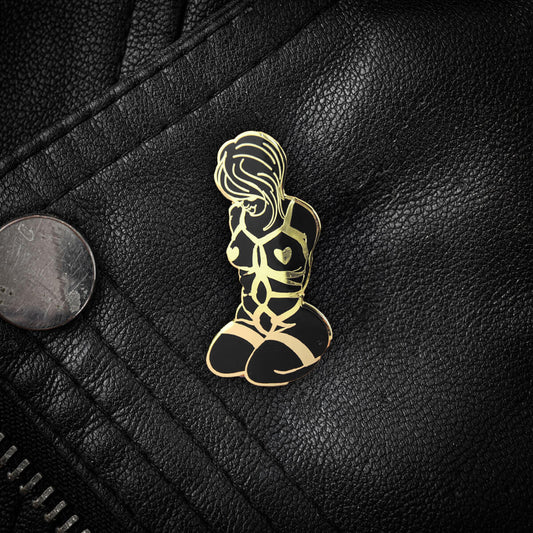
How Does Satanism Differ from Occultism?
Share
Satanism and occultism are often lumped together, but they are really not the same thing at all. The confusion comes from pop culture, religious fearmongering, and a general misunderstanding of what these terms actually mean. Some assume that all occultists worship Satan, while others believe that Satanists practice magic. Neither assumption is entirely accurate.
Satanism is a belief system that can be religious or purely philosophical, depending on the branch. Some Satanists worship Satan as a deity, but many see him as a symbol of rebellion, individuality, and self-empowerment. Occultism, on the other hand, is a broad term covering mystical, spiritual, and esoteric practices. It includes traditions such as alchemy, divination, ceremonial magic, and astrology - none of which necessarily involve Satan or Satanism.
While there is some overlap - especially among theistic Satanists who incorporate occult rituals - most occultists are not Satanists, and many Satanists reject supernaturalism entirely. Understanding the difference matters because misinformation has fuelled unnecessary fear and stigma for decades. This article breaks down what sets Satanism and occultism apart, their key beliefs, and where they sometimes intersect.

What Is Satanism?
Satanism is a belief system that challenges religious norms and promotes individualism, self-empowerment, and personal responsibility. It is not a single, unified religion but rather a broad category with different interpretations and practices. Some Satanists see Satan as a real entity, while others use him as a symbol of human nature, rebellion, and free thought.
The biggest divide in Satanism is between theistic and atheistic branches.
Theistic Satanism
Theistic Satanists believe in Satan as a supernatural being. Their view of him varies - some worship him as a deity, while others see him as a guiding force or liberator. Unlike Christian teachings, which depict Satan as the embodiment of evil, theistic Satanists often see him as a misunderstood figure who represents wisdom, power, and personal freedom.
Some theistic Satanists practise occult rituals, including demonology, ritual magic, and spirit invocation. However, these practices differ from person to person. Some seek communion with Satanic forces, while others focus on self-deification - the belief that humans can elevate themselves to god-like status.
Notable theistic Satanist groups include:
- The Temple of Set – Founded by Michael Aquino in 1975, this group broke away from LaVeyan Satanism and follows a more mystical, spiritual approach.
- Luciferianism – A movement that views Lucifer as a bringer of light, knowledge, and self-awareness, rather than a figure of evil.
While some theistic Satanists embrace the occult, many do not. Their focus is often on spiritual enlightenment and self-improvement rather than supernatural power.
Atheistic Satanism
Atheistic Satanists do not believe in Satan as a real being. Instead, they use Satan as a symbol - a representation of individualism, defiance against religious control, and the rejection of traditional morality.
The most famous branch of atheistic Satanism is LaVeyan Satanism, created by Anton LaVey in the 1960s. His book, The Satanic Bible, laid the foundation for the Church of Satan, which promotes self-interest, indulgence, and rational thinking. LaVeyan Satanists do not worship Satan - they see him as a metaphor for human nature and personal freedom.
Another well-known group, The Satanic Temple, takes a different approach. While also atheistic, they focus on political activism and secularism, using Satanic imagery to challenge religious influence in government. They are best known for their legal battles against religious privilege, arguing that if Christian symbols and prayers are allowed in public spaces, then Satanic ones should be too.
Atheistic Satanism often includes rituals, but they are psychological rather than supernatural. These rituals are designed to empower individuals, reinforce personal beliefs, or serve as theatrical expressions of defiance against religious oppression.
Core Beliefs of Satanism
Despite their differences, most forms of Satanism share common values:
- Individualism – Satanists prioritise personal freedom over religious or societal expectations.
- Self-Empowerment – Many believe in taking control of their own lives rather than relying on divine intervention.
- Rejecting Religious Dogma – Satanism opposes blind faith and encourages critical thinking.
- Moral Relativism – There is no universal "good" or "evil"; morality is seen as subjective and based on individual perspective.
- Rebellion Against Authority – Many Satanists, particularly atheistic ones, challenge religious institutions and societal norms.
Is Satanism Evil?
One of the biggest misconceptions about Satanism is that it is inherently evil or dangerous. This belief comes from Christian propaganda and media sensationalism, not reality. The vast majority of Satanists do not perform criminal acts, sacrifice animals, or worship evil. Instead, they focus on self-improvement, autonomy, and questioning authority.
Satanism, especially in its atheistic form, does not require belief in supernatural forces. It is not about chaos for the sake of chaos but about personal freedom, self-respect, and rejecting oppressive ideologies.

What Is Occultism?
Occultism is a broad category that covers mystical, esoteric, and supernatural practices. Unlike Satanism, which is a defined belief system, occultism is more of a toolkit - a collection of traditions, rituals, and spiritual systems that can be used by people from various religious and philosophical backgrounds. The word "occult" means "hidden" or "secret," reflecting its focus on knowledge and practices that are not part of mainstream religion or science.
Core Elements of Occultism
Occultism is about understanding and manipulating unseen forces. Some practitioners believe in supernatural entities, while others see occult practices as psychological or symbolic tools. Despite this diversity, certain key themes are common across different occult traditions:
- Alchemy – A blend of science, philosophy, and mysticism, alchemy aimed to transform base metals into gold and uncover spiritual enlightenment. It played a major role in the development of modern chemistry.
- Astrology – The belief that celestial bodies influence human affairs. Western astrology (horoscopes) and Eastern systems like Vedic astrology are both examples of occult traditions.
- Divination – The practice of gaining insight through tools like tarot cards, runes, scrying (gazing into reflective surfaces), and the I Ching. Some use it for predicting the future, while others see it as a method of self-reflection.
- Ceremonial Magic – Structured rituals designed to summon spirits, invoke deities, or channel hidden energies. Systems like the Kabbalah, Thelema, and the Hermetic Order of the Golden Dawn follow precise magical formulas and symbology.
- Mysticism and Theosophy – Spiritual traditions that seek enlightenment through meditation, altered states of consciousness, or deep study of esoteric knowledge.
Occultism has influenced many belief systems over time, including paganism, Gnosticism, Eastern spirituality, and even certain mystical branches of Christianity and Islam. Occultism is not tied to any one religion - some occultists are deeply religious, while others are atheists who see occult techniques as psychological tools rather than supernatural forces.
Does Occultism Involve Satan?
One of the most common misapprehensions is that occultism is inherently Satanic. This idea comes largely from Christian fearmongering and Hollywood’s obsession with linking magic to demonic forces. In reality, most occult traditions predate Christianity and have nothing to do with Satan.
Occultism does include dark or left-hand path traditions, which may involve demonology or spirits often labelled as "evil" by mainstream religion. Some occultists invoke beings like Lucifer, Lilith, or other figures associated with rebellion, but these entities are not necessarily seen as "Satan" in the Christian sense. Many occult traditions focus on personal growth, knowledge, or cosmic balance rather than devil worship.
Let’s break down the key differences between Satanism and occultism in more detail.
Key Differences Between Satanism and Occultism
Satanism and occultism are often confused, but they are not the same. While they can sometimes overlap, their core beliefs, approach to the supernatural, and moral perspectives are very different. Below are the key distinctions that separate the two.
Religious vs. Mystical Approach
Satanism is a structured belief system, either as a religion (theistic Satanism) or a philosophy (atheistic Satanism). It has clear values, such as individualism, self-empowerment, and rebellion against religious control. Satanists, particularly atheistic ones, do not necessarily believe in magic or supernatural forces.
Occultism, on the other hand, is a broad category of mystical and esoteric practices. It is not a religion but a toolkit of rituals and knowledge used by people of different faiths and spiritual backgrounds. Some occultists are religious, some are spiritual but not religious, and others approach the occult purely as a psychological practice.
A Satanist follows a philosophy or ideology, whereas an occultist studies hidden knowledge and may or may not have a defined belief system. Occultism is a set of techniques, while Satanism is a worldview.
Belief in the Supernatural
- Satanists (especially atheistic ones) generally reject supernaturalism. LaVeyan Satanists and The Satanic Temple do not believe in gods, demons, or spirits. Their rituals are psychological tools, not magical. Even theistic Satanists, who believe in Satan as a real being, do not necessarily believe in magic.
- Occultists often believe in supernatural forces. Many practise ceremonial magic, spirit communication, energy work, or divination, believing they can manipulate unseen forces. Some work with gods, spirits, or demons, but these are not necessarily Satanic.
While theistic Satanists believe in Satan, their approach is still distinct from general occultism. They may use occult methods, such as demon invocation or ritual magic, but their core belief is centred on Satan as a guiding force, not just hidden knowledge or mystical traditions.
Rituals and Practices
Satanic rituals are often symbolic and psychological, rather than magical. LaVeyan Satanists, for example, use rituals for self-empowerment, catharsis, or as theatrical rebellion against religious traditions. They do not believe they are summoning forces or altering reality. Even theistic Satanists, who perform spiritual rituals, typically focus on self-deification (becoming god-like) rather than broader occult traditions.
Occult rituals, however, are often designed to manipulate spiritual or cosmic forces. Occultists may use magic for personal transformation, divination, or enlightenment. Some follow structured magical systems, such as Thelema, Hermeticism, or Kabbalah, which involve complex rituals, symbolic tools, and spirit invocations.
A Satanist might perform a ritual for self-empowerment, while an occultist might perform a ritual to communicate with spirits or shift reality. The intent and belief behind the rituals are fundamentally different.
Moral and Ethical Perspectives
Satanism is fundamentally self-focused, encouraging people to prioritise their own needs and desires. LaVeyan Satanism, for instance, rejects traditional morality and promotes rational self-interest. Theistic Satanists may have their own ethical codes, but they typically reject religious teachings on good and evil, seeing Satan as a liberator rather than a figure of sin.
Occultism, on the other hand, is not tied to any specific ethical stance. Some occult traditions, such as Wicca, follow moral guidelines like the Wiccan Rede (“harm none”). Others, particularly Left-Hand Path traditions, prioritise personal power over moral restrictions. Occultism itself does not dictate a moral framework - its practitioners decide how to use it.
Public Perception
Satanism is highly controversial, largely due to religious fearmongering and media sensationalism. The “Satanic Panic” of the 1980s and 1990s led to mass hysteria, falsely linking Satanism to crime, abuse, and conspiracies. Even today, many assume Satanists are dangerous or immoral, despite the fact that most live ordinary lives and do not engage in any criminal activity.
Occultism, while also misunderstood, does not carry the same rebellious or anti-religious image. It has long been associated with mysticism, secret societies, and alternative spirituality rather than outright defiance of religious institutions. While some occult traditions - such as Crowley’s Thelema - have been accused of promoting hedonism, many others are seen as philosophical or mystical rather than rebellious.
Overlaps and Misunderstandings
The confusion between Satanism and occultism is largely due to historical fear, religious propaganda, and media misrepresentation. While they are separate, there are areas where they overlap - though not as often as people assume.
Why People Confuse the Two
For centuries, religious authorities have demonised occult practices, branding them as “Satanic” regardless of their actual beliefs. The witch trials of the 16th and 17th centuries saw healers, astrologers, and mystics accused of making pacts with the Devil. Even today, terms like “witchcraft” and “Satanism” are used interchangeably in some religious circles, despite being unrelated.
Hollywood has made things worse. Films, books, and TV series often depict occultists as Satan-worshippers, performing dark rituals, sacrificing animals, or summoning demons. This sensationalism reinforces the false idea that anyone involved in esoteric practices must be part of some Satanic cult.
The Satanic Panic of the 1980s and 1990s further blurred the line. Police, media, and religious groups claimed that “Satanic cults” were secretly operating, performing sacrifices, and corrupting children through music and games like Dungeons & Dragons. Most of these stories were later proven false, but the damage was done - Satanism and occultism became linked in the public mind.
Occultists Who Use Satanic Imagery
Some occultists incorporate Satanic symbols and themes into their practices, even if they do not consider themselves Satanists. For example:
- Left-Hand Path occultists – Some practitioners of Thelema, Luciferianism, or Chaos Magic use Satanic imagery as a way to reject religious dogma and embrace personal power.
- Dark magic practitioners – Some occultists work with demons or spirits associated with darkness, such as those in Goetic magic, which is based on medieval demonology. However, working with these entities does not make someone a Satanist.
- Artists and countercultural figures – Many musicians, writers, and performers use Satanic imagery as a form of rebellion or to provoke reaction. This does not mean they actually follow Satanism or practise occult rituals.
Satanists Who Use Occult Practices
Some theistic Satanists incorporate occultism into their beliefs, particularly those who see Satan as a real spiritual force. These practitioners may use:
- Ritual magic – Some theistic Satanists use ceremonial magic to commune with Satan or demonic forces.
- Sigil work and spellcasting – Some create symbols or rituals designed to manifest desires or seek guidance.
- Astrology, divination, and energy work – While less common, some Satanists explore these areas, particularly those with a mystical or spiritual outlook.
However, most atheistic Satanists reject occultism altogether. The Church of Satan and The Satanic Temple do not practise magic in a supernatural sense. Any rituals they perform are purely symbolic and psychological rather than an attempt to control mystical forces.
The Media’s Role in Spreading Misinformation
Pop culture loves to combine Satanism and occultism into one sinister package, because that makes life simpler! But it just reinforces outdated stereotypes. From horror films like The Exorcist and Rosemary’s Baby to conspiracy theories about “Satanic elites,” the idea of secret cults performing dark magic remains a popular but false narrative.
In reality:
- Most Satanists do not practise occult magic - atheistic Satanists in particular see magic as superstition.
- Most occultists are not Satanists - many follow spiritual paths completely unrelated to Satan, such as Wicca, Hermeticism, or Eastern mysticism.
- There is no global Satanic conspiracy - the “Satanic Panic” was debunked, and no evidence has ever supported claims of organised Satanic crime.
Final Thoughts
The idea that all occultists are Satanists and all Satanists are occultists is simply wrong. While some individuals blend both, they are separate concepts with different goals and beliefs. To sum it up:
- Satanism is a belief system, either religious (theistic) or philosophical (atheistic), focused on individualism, rebellion, and self-empowerment.
- Occultism is a collection of mystical and esoteric practices that can be used by people of many different religions and worldviews.
Understanding these differences is crucial to challenging fear-based narratives and separating fact from fiction. The reality is far less dramatic than the myths - most Satanists and occultists are ordinary people, not villains from a horror film!













